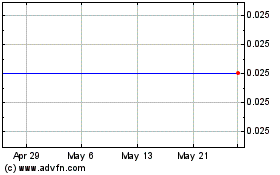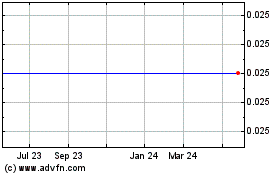Claritas Pharmaceuticals, Inc. (TSX VENTURE: CLAS and OTC: KALTF)
(the "
Company" or "
Claritas")
today announced that a recently published study led by clinicians
at Royal Brompton & Harefield NHS Foundation Trust1 validates
the potential of the Company’s proprietary nitric oxide releasing
compound, R-107, as a potential therapy for coronavirus and
COVID-19 infection. In the cited study, inhaled nitric oxide was
seen to significantly improve oxygen levels administered in
patients with severe COVID-19 pneumonia.
The study at Royal Brompton & Harefield NHS
Foundation Trust was the largest of its kind worldwide. In this
study, 35 Patients with COVID-19 pneumonia who were on ventilation
were given inhaled nitric oxide as part of routine care when they
were failing to respond to best standard treatments. This led to
significant improvements in oxygen levels and improvements in
ventilatory efficiency at 24 hours and for up to
five days.
COVID-19
COVID-19 is caused by a coronavirus called severe acute
respiratory syndrome coronavirus 2 (SARS-CoV-2).
The Science of Nitric Oxide and
R-107
Claritas is developing R-107 for the potential
treatment of vaccine resistant COVID-19 infection and pulmonary
arterial hypertension (“PAH”).
R-107 Is a Nitric Oxide-Releasing
CompoundR-107 is a proprietary nitric oxide-releasing
compound. Following administration, R-107 enters the bloodstream,
where it slowly releases nitric oxide systemically over 24
hours.
____________1 Garfield B., McFadyen C., Briar
C., Bleakley C., Viachou A., Baldwin M., et. al., British Journal
of Anaesthesia, Volume 126, Issue 2, E72-E75, February 01,
2021.
Nitric Oxide is a Critical Part of the
Body’s Natural Defense System Against VirusesNitric oxide
is a natural molecule with antiviral properties that is produced by
the body itself. It is an integral part of the body’s natural
defense system. When a viral threat is present, white blood cells
migrate to the area of infection and release a burst of nitric
oxide that crosses into the infected cell and inactivates the
virus, so that it is incapable of further replication and
spread.
Nitric Oxide - Kills
Viruses on ContactNitric oxide is known to have a broad
antiviral activity against multiple viruses, including those whose
genes are encoded by RNA, so-called “RNA viruses”.2 The SARS-CoV-2
virus, which is responsible for COVID-19 infection, is an RNA
virus. Other RNA viruses of importance that cause human disease
include influenza, SARS, the common cold, hepatitis
C, hepatitis E, West Nile fever, rabies,
and measles.
R-107 - A Potential Breakthrough in
Nitric Oxide Therapy The historical challenge with nitric
oxide therapy has been the difficulty of delivering the molecule in
an effective and practical manner. Nitric oxide exists as a gas
must be delivered by inhalation therapy requiring use of a
CPAP-like device and administration by trained respiratory
therapists. When inhaled, nitric oxide gas is absorbed into the
lung tissues, where it has a half-life of only a few seconds.
Accordingly, it is believed that inhaled nitric oxide may eliminate
virus in the lungs, but does not survive long enough within the
circulation to reach distant organs and eliminate their viral
infection.
R-107, on the other hand, is a breakthrough
compound designed to overcome the limitations of nitric oxide
inhalation therapy. R-107 is a liquid that may be readily
administered orally in a capsule, or by an intramuscular or
subcutaneous injection. Following administration, R-107 enters the
bloodstream, where it is stable and can slowly release nitric oxide
systemically over 24 hours. R-107’s systemic release of nitric
oxide would thus potentially allow elimination of virus in all
organs and tissues, not only in the lungs.
COVID-19 Pneumonia
Most patients who contract COVID-19 have mild or
moderate symptoms like coughing, a fever, and shortness of
breath. However, about 15% of patients develop severe infection and
often present with pneumonia in both lungs.
COVID-19 Pneumonia and PAH
Pulmonary arterial hypertension
(“PAH”) is a frequent complication of
COVID-19 pneumonia. The spike protein of the COVID-19 virus damages
the endothelium, the lining of the blood vessels. In the blood
vessels of the lungs, this damage results in clots that increase
pulmonary blood pressure. As the blood vessels in the lung are
progressively blocked by clots and become engorged with blood,
arterial blood pressure or PAH increases, leading to acute stress
and ballooning of the right side of the heart. This stress on the
right side of the heart may become unsupportable and cardiac
failure and death ensue.
________________2 Nathan C., Xie Q.W. Nitric
oxide synthases: roles, tolls, and
controls. Cell. 1994;78:915–918. doi:
10.1016/0092-8674(94)90266-6.
R-107 in Treatment of Severe COVID-19
Pneumonia and PAH
In the gold-standard animal model of PAH, R-107
was seen to prevent damage to the lining of blood vessels in the
lungs and to protect the right side of the heart from PAH and
cardiac failure. In this study, R-107 profoundly and immediately
reduced PAH.
Risks of Decreasing Vaccine
Effectiveness and COVID-19 Infection
According to a report recently published in
Israel, people vaccinated before late February this year are twice
as likely to contract COVID-19 infection as are people inoculated
after that date. “We looked at tens of thousands of people tested
in the month of June, alongside data on how long had passed since
their second shot, and found that those vaccinated early were more
likely to test positive,” stated Dr. Yotam Shenhar, who headed the
research. The report, published by the Israeli healthcare provider
Leumit, follows other Israeli studies that suggest decreasing
vaccine effectiveness, partly as a result of the Delta variant and
partly because of the passage of time.
“Given the potential waning of the effectiveness
of the COVID-19 vaccines, and the positive outcomes observed in the
study at Royal Brompton & Harefield NHS Foundation Trust, we
are convinced of the importance of our program to develop R-107 as
a treatment for coronavirus and vaccine-resistant COVID-19
infection,” stated Robert Farrell, Claritas’ President and CEO.
“A COVID-19 treatment will be essential to
manage illness resulting from vaccine-resistant strains of the
virus, as well as potentially providing a rescue therapy for
patients who did not receive a vaccine or for whom the vaccine is
no longer effective.”
Professor Salvatore Cuzzocrea, President of the
University of Messina and former President of the European Shock
Society is working with Claritas, and has read and approved of the
scientific disclosure in this news release. Professor Cuzzocrea has
deep expertise regarding the medical use of nitric oxide and nitric
oxide donors, and has published more than 600 papers on nitric
oxide. He has conducted research and experiments with nitric oxide
and nitric oxide donors since 1994, and worked closely as an
advisor with the Salzman Group team that designed and invented
R-107.
The Company is not making any express or implied
claims that its product has the ability to eliminate, cure, or
contain the Covid-19 (or SARS-2 Coronavirus) at this time.
About Claritas
Pharmaceuticals
Claritas Pharmaceuticals, Inc.
("Claritas") is committed to developing new
treatments for a variety of diseases and disorders, by discovering,
developing, manufacturing and delivering innovative human
therapeutics. Claritas focuses on areas of unmet medical need, and
leverages its expertise to find solutions that will improve health
outcomes and dramatically improve people's lives.
- Website
Home: https://claritaspharma.com/
- News and
Insights: https://claritaspharma.com/news/
-
Investors: https://claritaspharma.com/investors
Cautionary StatementsNeither
TSX Venture Exchange nor its Regulation Services Provider (as that
term is defined in the policies of the TSX Venture Exchange)
accepts responsibility for the adequacy or accuracy of this
release.
This press release may contain certain
forward-looking information and statements ("forward-looking
information") within the meaning of applicable Canadian securities
legislation, that are not based on historical fact, including
without limitation in respect of its product candidate pipeline,
planned clinical trials, regulatory approval prospects,
intellectual property objectives, and other statements containing
the words "believes", "anticipates", "plans", "intends", "will",
"should", "expects", "continue", "estimate", "forecasts" and other
similar expressions. Readers are cautioned to not place undue
reliance on forward-looking information. Actual results and
developments may differ materially from those contemplated by these
statements depending on, among other things, the risk that future
clinical studies may not proceed as expected or may produce
unfavorable results. Claritas undertakes no obligation to comment
on analyses, expectations or statements made by third parties, its
securities, or financial or operating results (as applicable).
Although Claritas believes that the expectations reflected in
forward-looking information in this press release are reasonable,
such forward-looking information has been based on expectations,
factors and assumptions concerning future events which may prove to
be inaccurate and are subject to numerous risks and uncertainties,
certain of which are beyond Claritas’ control. The forward-looking
information contained in this press release is expressly qualified
by this cautionary statement and is made as of the date hereof.
Claritas disclaims any intention and has no obligation or
responsibility, except as required by law, to update or revise any
forward-looking information, whether as a result of new
information, future events or otherwise.
Contact InformationRobert
FarrellPresident, CEO(888)
861-2008info@claritaspharma.com
Claritas Pharmaceuticals (TSXV:CLAS)
Historical Stock Chart
From Dec 2024 to Jan 2025

Claritas Pharmaceuticals (TSXV:CLAS)
Historical Stock Chart
From Jan 2024 to Jan 2025
